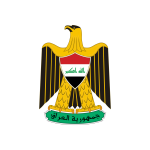Legal Department
It consists of the following formations:
Firstly: Consulting and Agreements Section:
A- It undertakes the following tasks:
- Express opinion and legal advice on all matters related to investment plans and projects and matters related to the Ministry’s activity.
- Answering inquiries related to public employment.
- Examining the applications of contracting companies and contractors referred to the Ministry and expressing an opinion thereon.
- Preparing legal studies and research aimed at developing the Ministry’s work.
- Studying the Arab and international agreements referred to the department and making observations in their regard.
- Participate in negotiating agreements with other countries and Arab and foreign companies and preparing their projects in which the Ministry is a party.
B- The department performs its duties through the following two divisions:
- Legal advice .
- agreements.
secondly : Legislation department
A- It undertakes the following tasks:
- Reviewing and evaluating the legislation in force related to the Ministry’s objectives and analyzing its legislative impact.
- Drafting and scrutinizing draft legislation received from the departments of the ministry or from ministries and agencies not associated with a ministry and discussing them with the concerned authorities in accordance with the provisions of the constitution, development plans and international agreements to which Iraq is a party and related to the objectives of the ministry.
- Submit proposals or studies related to legislation.
- Adopting the legislative impact assessment in the preparation and auditing of legislation and qualifying employees to do so.
- Follow-up legislative procedures for the issuance of legislation and submit reports thereon to the higher authorities.
- Follow up the legislation issued in the Iraqi Gazette, determine the role of the ministry in implementing these legislations, and submit a report to the higher authorities to take the necessary measures.
Documenting the legislation in force, draft legislation, comparative laws, preparatory work, and minutes of relevant meetings
Achievement of the Department of Legislation
B- The department performs its duties through the following divisions:
1- Legislative Audit Division, which undertakes the following tasks:
A- Preparing draft laws, regulations, instructions, controls and decisions related to the formations and departments of the ministry.
b- Evaluation of draft laws, regulations, instructions, controls, and decisions received by the department from inside or outside the ministry according to the theory of legislative impact analysis, and qualifying staff capabilities accordingly.
C- Representing the Ministry in discussing draft laws, regulations, instructions and decisions with the competent authorities.
d- Submit proposals or studies to amend the legislation in force.
2- The Legislation Follow-up Division, which undertakes the following tasks:
A- Following up the legislative procedures for draft laws, regulations, and instructions, determining the stage they have reached, and submitting a report thereon.
B- Follow up the issuance of the preparation of the Iraqi Gazette with the Ministry of Justice / the Iraqi Gazette Department to provide the ministry with the issues issued.
C – Publication of the preparation of the Iraqi Gazzete on the bulletin board of the department.
D- Preparing a list of legislation issued annually, classified according to the legislative hierarchy.
E- Following up legal studies and research on legislative reform and preparing a report on the extent to which these studies and research can be used in reforming Iraqi legislation.
3- The Legislation Documentation Division, which undertakes the following tasks:
A- Organizing a register of laws, regulations, instructions, and decisions in the Ministry, indicating the title of the legislation, its number, the year of its issuance, and the amendments that occurred to it.
B- Documenting draft legislations electronically with the minutes of meetings and preparatory work for them.
C- Documenting comparative legislation related to the Ministry’s legislation to benefit from the provisions and principles when preparing or evaluating draft laws, regulations, instructions and decisions.
D- Documenting circulars of a legal nature electronically.
E- Preparing a monthly report on the department’s activities, including the number of completed legislations and other qualitative activities.
Third : Rights section
– a- : Undertakes the following tasks:
- Representing the Ministry before courts, judicial and investigative bodies and committees in all works related to the Ministry’s work and formations.54
- Challenging judgments and decisions issued by the courts with the competent authorities.
- Organizing guarantees and undertakings related to the Ministry’s employees and formations and following up on their implementation.
- Checking the minutes of the investigative committees formed in the ministry and their formations and following them up.
- Develop strategies that lead to the protection of human rights and fundamental freedoms in the ministry’s departments and formations.
- Organizing programs, training courses and workshops for employees of the Ministry and its formations to raise awareness and educate the basic principles of human rights.
- Participation in conferences and committees on human rights.
- Submitting an annual report that includes an evaluation of the Ministry’s performance in the field of human rights in the light of international standards and proposing remedies.
B- The department performs its duties through the following divisions:
- lawsuits.
- Undertakings and guarantees.
- Investigative committees.
- human rights .
Fourthly : Department of classification of contracting companies and contractors
A- It undertakes the following tasks:
- Checking the applications and the extent to which they meet the legal conditions, collecting fees and wages in accordance with the law, preparing them according to their grades and specialization, and submitting them to the Contracting Companies and Contractors Classification Committee for consideration within (60) sixty days from the date of their registration in the department without deficiencies.
- Issuing the identities of the classification of contracting companies and contractors after the Minister’s approval of the committee’s decision, and keeping records for that
- Maintaining the data bank for Iraqi contracting companies and contractors and updating their data electronically.
- Answering the inquiries of contracting companies and contractors.
- Keeping all the files of the contracting companies and contractors who obtained the identities and organizing them according to the sequence.
- Preparing a database on contracting companies and contractors, and providing the competent and relevant authorities with information upon request, according to controls set by the committee.
- Verify the personal documents of contracting companies, their founders, shareholders and contractors.
- Organizing the legal undertakings of the companies’ founders, shareholders, or contractors not to be appointed as employees in state departments
B – The department performs its tasks through the following divisions:
- audit.
- systems and identities.
- files.
Fifth: Department of contracting companies and contractors information
A- It undertakes the following tasks:
- Receipt of requests from ministries and entities not associated with a ministry and governorates regarding the inclusion and removal of contracting companies and contractors in the black list and the list of lagging behind and follow-up thereof.
- Preparing applications for listing and removing contracting companies and contractors from the blacklist and delaying and submitting them to the Contracting Companies and Contractors Classification Committee for a decision and keeping records for that.
- Issuing circulars for inclusion and removal from the black list and the reluctance list, after the Minister’s approval of the committee’s decisions.
- A statement of the legal position of the contracting companies and contractors on the blacklist and the list of reluctance.
- Confirming the authenticity of issuing the identity of the classification of contracting companies and contractors.
B – The department performs its duties through the following two divisions:
- Blacklist and reluctance .
- The legal position and the verification of issueance
Sixthly: Archive section
A- It undertakes the following tasks:
- Receiving incoming mail to the department, recording it in its own records, and referring it to the relevant departments.
- Issuing and keeping internal memos, noting the incoming memos and referring them to the relevant departments to take the necessary action in their regard.
- Printing the books of the general manager and following them up.
- Save incoming and outgoing mail according to the applicable indexing system and extract it upon request.
- Managing the department’s e-mail and gradually shifting to mechanized work.
- Carrying out the secretarial work of the department and organizing all issues related to the meetings of the Director General and his participation in committees inside and outside the ministry.
B: The department performs its duties through the following divisions
- Incoming and outgoing.
- Electronic documentation and follow-up.
- the Secretary.
Seventh: Division of non-governmental advisory offices
A- It is linked to the General Manager and undertakes the following tasks:
- Considering the requests of the office founders, verifying the availability of the legal conditions in them, and ensuring that the documents are issued to the founders and shareholders.
- Conducting on-site inspection of the office headquarters, confirming their address, and ensuring their ownership, in coordination with the planning directorates in the governorates.
- Approving the establishment of advisory offices for trade unions and associations.
- Answering inquiries about non-governmental advisory offices.
- Maintaining the data bank of non-governmental advisory offices.
- Documenting the work of the Disciplinary Committee formed under the Non-Governmental Consulting Offices Law No. (16) of 2000.
- Issuing identification cards for opening non-governmental advisory offices.
- النشرة الشهرية للدائرة القانونية لشهر اذار 2023
- The monthly newsletter of the Legal Department for the month of February 2023
- The monthly newsletter of the Legal Department for the month of January 2023
- The monthly newsletter of the Legal Department for the month of December 2022
- The monthly newsletter of the Legal Department for the month of November 2022
- The monthly newsletter of the Legal Department for the month of October 2022
- The monthly newsletter of the Legal Department for the month of September 2022
- The monthly newsletter of the Legal Department for the month of August 2022
- The monthly newsletter of the Legal Department for the month of July 2022
- The monthly newsletter of the Legal Department for the month of June 2022
- The monthly newsletter of the Legal Department for the month of May 2022
- Monthly newsletter of the Legal Department for the month of April 2022
- Discussing instructions to facilitate the implementation of the Federal Financial Management Law
- Publication of the preparation of an executable action plan for the investment of mineral wealth in Iraq
- Book 23185 published on 9/20/2021 – Legal Seminars
- Book 21072 published on 9/1/2021 – Legal Seminars
- Book 19571 published on 8/18/2021 – Legal Seminars
- Book 19572 published on 8/18/2021 – Legal Seminars
- Publication / Memorandum 1868 on 9/20/2021
- Publication / Memorandum 1870 on 9/20/2021
- Publication / Memorandum 1871 on 9/20/2021
- Publication / Memorandum 1872 on 9/20/2021
- Publication / Memorandum 1869 on 9/20/2021
- Legislation and laws guide
- Instructions for the foundations of economic and technical feasibility No. (1) of 1984
- A guide to the work of the legal department for the year 2020
- Workshop on instructions for implementing works in the manner of implementation, Secretariat No. (1) for the year 2018
- Achievements of the Department of Law
- Achievements of the legal department for the period from 24-7-2012 to 23-6-2014
- Achievements of the Legal Department for the months of April and May
- Achievements of the Legal Department for the months of February and March
- Achievements of the Legal Department for the month of January 2014
- Achievement for the month of May 2013
- Achievement of the legal department for the period from 01/02/2013 to 05/31/2013
- Quarterly report for the period from 1-10-2012 to 31-12-2012
- Quarterly report for the period from January 2, 2012 to September 30, 2012





